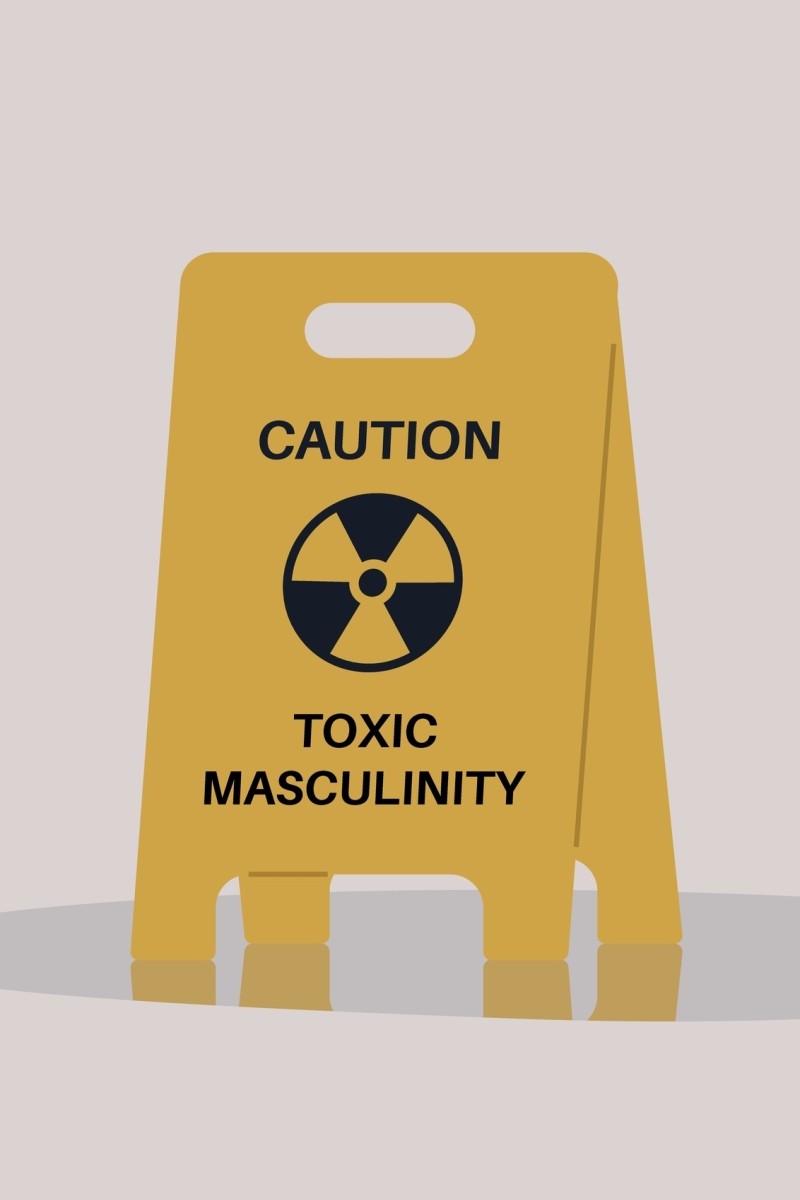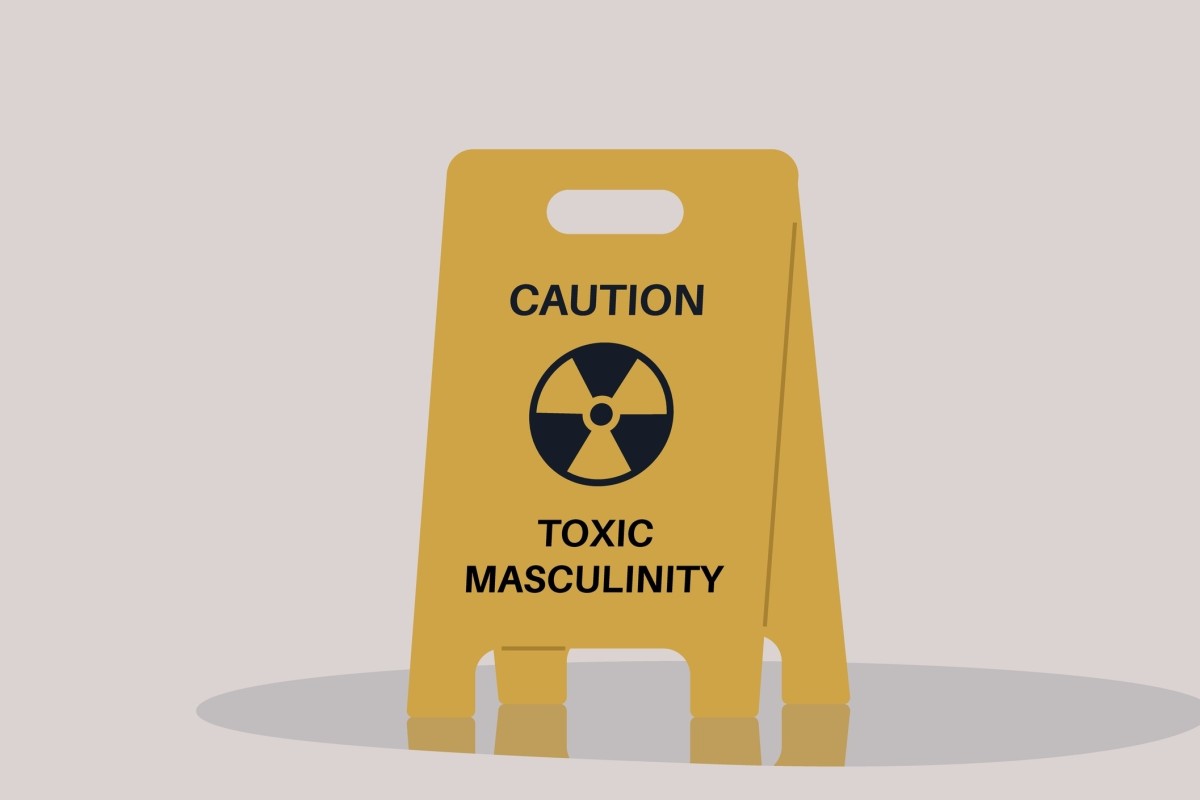
Your Voice: How toxic masculinity hurts men; homework can help Hong Kong students (long letters)
- Men should be allowed to express their feelings and ask for help without facing social stigma, one student writes
- Another says take-home assignments help pupils practise the skills they’ve learned in class and prepare for exams
 Teaching boys that they can’t ask for help or express emotions is part of toxic masculinity. Photo: Shutterstock
Teaching boys that they can’t ask for help or express emotions is part of toxic masculinity. Photo: ShutterstockHave something to say? Send us a letter using this Google form.
Boys don’t cry? That’s so out of date
Chinny Kwok, West Island School
Have you heard of the phrases “man up” or “boys don’t cry”? They are part of a stigma known as “toxic masculinity”, defined as a set of attitudes associated with or expected of men that have a negative impact on men and society as a whole.
In short, these are society’s expectations of men. Many argue that we continue to subtly perpetuate this stigma with our words and actions. Words have a deeper psychological effect than one may believe.
According to a report by Pan American Health Organisation (PAHO) in 2019, one in five men will not reach the age of 50 in America, partly due to social constructs built up over decades which contribute to risk-seeking behaviour. Why? How can toxic masculinity kill so many people?
Some of the leading causes of death for men are interpersonal violence and road accidents, related to socially constructed “macho” behaviour. The gender roles socially imposed on men tell them to neglect their physical and mental health. This manifests in a multitude of outlets that include physical violence and mental health risks.
The PAHO report analyses a broad range of risks in three areas: risk to women and children, risk to other men and risk to self. Risks can appear in the form of domestic violence, sexually transmitted diseases, alcoholism or other mental health issues that can have drastic, even fatal consequences.
In a study conducted by The Man Box, 23 per cent of men in the US believed that violence was necessary to gain respect from others. When a man actively follows the imposed rules of masculinity, such as exerting aggressive or domineering behaviour towards others, especially women, this can lead to much wider problems in society, including sexual assault, gun violence and even rape.
Let’s be clear: recognising toxic masculinity isn’t saying that masculinity itself is toxic
From an early age, boys are taught to hide their feelings, to “man up”. This repression of “weakness” gives rise to unaddressed mental health issues like anxiety and depression. The impact is exacerbated by the fact that men are far less likely to reach out for help than women, due to a fear of being judged as “weak” or “unmanly”. As a society, we have constructed a stigma with proven detrimental effects that translate into anger and repression, an everlasting cycle.
However, society is working towards breaking these barriers and getting men the help they may need. A growing number of young men are beginning to break these norms by speaking up and asking for help through online therapy or counselling. This can help prevent further psychological distress.
Education is key in protecting boys, by teaching them to embrace their emotions and not hide them. By educating society on these issues through advocacy, workshops and counselling we can change mindsets and perspectives. Parents should also be taught about how they can raise their children mindfully.
It’s crucial that everyone understands the importance of mental health issues.
Your guide to gender identity and the importance of pronouns
There’s a method to the madness behind homework
Lucas Lee, Sha Tin Tsung Tsin Secondary School
Teachers have long touted the merits of homework, but critics insist homework does nothing to propel students to success and instead piles too much pressure onto them. But before that war of words, understanding the purpose of homework is vital.
Homework helps consolidate students’ understanding before and after class. Lessons in school usually last, at most, an hour. Take maths as an example. Given the complicated concepts being taught, it can be difficult for students to correctly answer all of the maths questions after just an hour of learning. How can students feel confident when they have to comprehend so many concepts within an hour?
It takes a lot of effort to learn everything that will help students survive the exam. Knowing that, teachers assign homework on school days with the hope of helping students better understand the topics.
Before lessons, homework gives students an overview of what they are about to learn. And with Hong Kong’s exam-oriented culture, homework provides a chance after school for students to hone their skills. As students revise, they bolster their understanding of the topics and are prepared for lessons the next day.
Nevertheless, is homework truly beneficial to students? This decision on whether to give assignments depends on a few factors. On the one hand, homework serves as an impetus for students to further explore their interests.
Everything that is covered in a homework assignment – from ancient Chinese literary masterpieces, to sports terminology worksheets in English, to simultaneous equations – is usually related to the curriculum. Not only does it help solidify students’ knowledge of everything taught in class, but it also allows them to prepare for coming lessons.
Another upside lies in the questions given in assignments. For instance, when it comes to preparing short stories in English, students are bound to move beyond their textbooks, to the internet, to extracurricular books or even to discussions with their peers. How could textbooks include the countless outstanding story samples out there? With that, homework can aid students in exploring further and developing a unique writing style. And with extra learning resources come better results because what students know is no longer bounded by standardised textbooks.
Help! I’m so unmotivated in school and I want to give up
On the other hand, the claim that homework compounds the burden on students cannot be ignored. With their timetables packed with extracurricular activities in addition to hours of daily lessons, students are inevitably burnt out by the end of the day. They should be allowed to unwind after school, right?
Instead, homework robs them of their private time when they could be socialising with friends or exploring hobbies. This lack of downtime is detrimental to students’ mental and physical health.
Clearly, the benefits of homework hinge on whether students are willing to make sacrifices. But in the meantime, the benefits of homework remain irrefutable. In the end, students must sacrifice some of their private time for the sake of better results, or teachers must stop giving homework to allow for free time, but likely at the expense of success on exams.
The educational system of giving assignments has endured despite its flaws, meaning its various merits must hold water.
